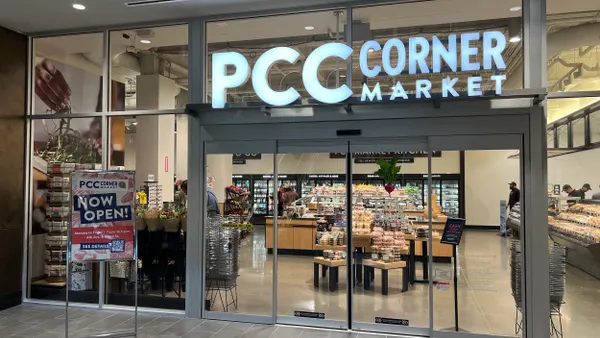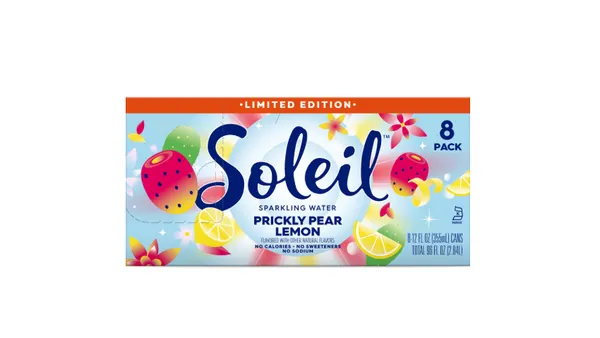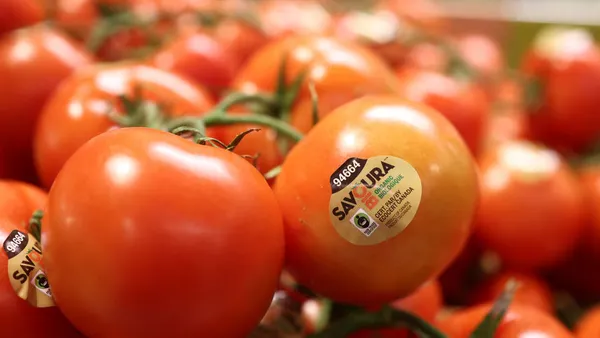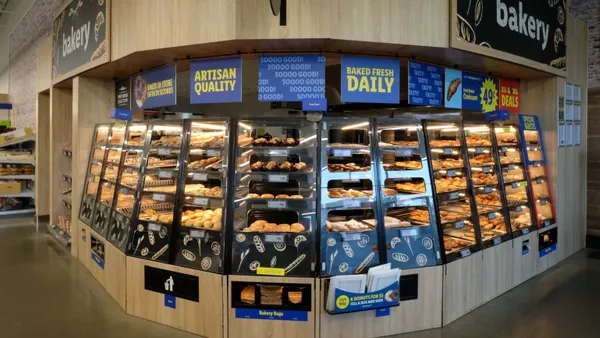Dive Brief:
- Food waste costs retailers about $18.2 billion a year, according to Refed, a nonprofit organization dedicated to fighting food waste in the U.S. In total, food retailers generate 8 million tons of waste a year and 23% of total landfill waste comes from containers and packaging, according to the Environmental Protection Agency.
- As CNBC writes, retailers large and small are tackling the problem with varying degrees of success. Many small, waste-free retailers have popped up over the years but only a few have been successful due to the inability to alter U.S. consumer habits.
- Meanwhile, chains like Kroger are trying to tackle waste reduction on a larger scale. The Cincinnati-based grocer is phasing out single-use plastic bags, diverting more food to hunger-relief organizations and trying to boost sales of imperfect produce.
Dive Insight:
Retailers everywhere are working on reducing waste to resonate with environmentally conscious consumers — but doing so can be a large and costly project. Although these measures are initially expensive, if successful, grocers could collectively save billions in the long run.
As large grocers tackle this problem, they can look to the struggles and successes of smaller operators. The first zero-waste grocer, In.gredients opened in 2012 in Austin, Texas. Although it was making a positive impact, the grocer wasn't changing consumer shopping habits or resonating with consumer demands for quick, impromptu trips where bringing their own containers may not be possible. In.gredients lost business and didn't offer staple grocery products like cases of beer, potato chips or Thanksgiving turkey. In order to retain customers who didn't want to bring their own packing products, the grocer shifted its model from addressing food and packaging waste to just food.
Although this worked for a few years, business never took off and In.gredients shut its doors earlier this year. The store was ahead of its time, in many ways, and its ambitions may have put the mission ahead of the business, which can always be treacherous. Still, In.gredient's co-founder Christian Lane believes the concept could work at scale — and he may be right.
In September, Kroger announced it would eliminate food waste across the company by 2025 though prevention, donation, and diversion efforts. The grocer has spent the past year orchestrating a waste analysis to help the company understand the problem and create an action plan. Its goals are lofty but the grocer is banking on its tech-savvy initiatives like an automated in-store ordering system to only order the number of perishable items needed. This technology is similar to on-demand ordering solutions that competitors like Whole Foods and Target have also implemented.
In August, the retail announced it would phase out single-use plastic bags over the next several years. Then just last week, Kroger announced the launch of an "ugly" produce brand aimed at encouraging consumers to purchase imperfect produce.
Waste-free stores could make a real difference, as evidenced by retailers in other parts of the world. Singapore opened its first waste-free store in April, while Europe has seen a few successful launches in recent years. Earlier this year, plastic-free supermarket Ekoplaza opened its doors in Amsterdam and gained international attention, a sign of just how important reducing waste — including packaging, which makes up 23% of landfill waste, according to the EPA — is to consumers.











